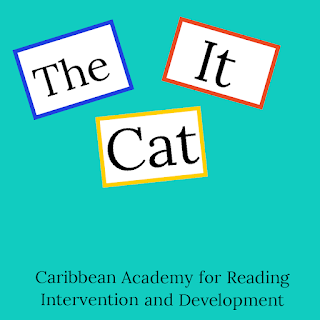Flashcards: 2 Flashcard Activities To Improve Your Child's Reading Skills
Sound-Symbol
Recognizing sound-symbol links is one of the first abilities that young children acquire in school. It is the relationship between letter names and the sounds they produce. Understanding sound-symbol links is a crucial step for reading and writing independence. Visual to auditory (reading) and auditory to visual (writing) sound-symbol association must be taught and mastered in two directions (spelling). In addition, pupils must be able to mix sounds and letters into words, as well as segment full words into separate sounds.
For this activity, you’ll need at least 52 flashcards. Bristol board or pages can be cut into squares, to use as flashcards. 26 flashcards would be made, each with a letter of the alphabet. These can be written using colourful markers or crayons etc. The next 26 flashcards would be used to draw pictures of items that begin with each letter. Example: a - apple, b - bat, c - cat. Once this is complete, an activity can be done with your child/student where you show them a letter and they’ll need to find the picture of the item that begins with that letter. For example, when shown the letter ‘b’, they’ll need to find the picture of the bat. Another activity would be showing them the picture of an item and they’ll have to find the letter that that item begins with. With this activity, when shown the picture of the cat, they’ll need to find the letter ‘c’. During this activity, prompt students to give the sound of each letter and listen for that sound in the beginning of the names of the items drawn. For example, sounding out the word c-a-t and identifying the sound of the letter ‘c’ at the beginning of the word.
Syntax
The arranging of words and phrases to generate well-formed sentences is known as syntax. Syntax is the pattern and arrangement of words, phrases, and clauses that make up a sentence. A student must analyze, store (in working memory), and integrate a range of syntactic and word meaning information in order to grasp a phrase (Paris & Hamilton, 2009). By giving students opportunities to rearrange and add words to sentences, numerous educational exercises might help students acquire "sentence sense" (i.e., syntactic awareness).
Flashcards can be used to improve syntactic awareness. For this activity, you’ll need several flash cards. On each flashcard write random yet common words, example: the, dog, in, girl, fat, was, is, park, mat, a, boy. These flashcards are then placed in front of the student and they are instructed to rearrange all/some of the words to make sentences. From the list of words given above, the sentence ‘A fat girl is in the park’ can be made. Some students may need prompts or guidance while others may be able to complete this activity independently.
At The Caribbean Academy for Reading Intervention and Development, we offer an Individual Reading Assistance Program that assists struggling readers to build skills in:
Sight words and high-frequency words
Sounds recognition
Reading comprehension
Letter and word recognition
Phonics and phonemic awareness
Our Reading Assistance Programme is designed to teach the foundational skills of reading to children with significant academic challenges, empowering them to achieve grade-level proficiency. Our dedicated tutors help struggling readers understand the basic mechanics of reading and help them develop critical reading skills that will help them develop a lifelong love of reading.
Target Audience: Struggling readers between the ages of 5 years to 10 years.
Persons interested in our Individual Reading Assistance Program can contact us at 1-868-474-9819.
Chrystal Murray has a passion for imparting knowledge and adding value to the lives of others.
She has been an educator for over 14 years. She holds a B.A. Degree in History and Education
from the University of the West Indies (UWI). She also possesses several professional certificates in Understanding Dyslexia, Successful Educational Strategies for Children with Special Needs, and Supporting Multiple Abilities through Differentiation just to name a few. She is also certified in Counselling Youth and Children and Parenting the Adolescent. Chrystal is the Founder and Principal of two academic institutions, the Caribbean Ivy League Academy and the Caribbean Academy for Reading Intervention and Development. She founded the Caribbean Academy for Reading Intervention and Development where she works assiduously with children who have reading challenges. She also uses this platform to motivate, inspire and help build confidence in the children who are in her care.
Chrystal Murray
Reading Interventionist
1-868-474-9819





.png)

Comments
Post a Comment